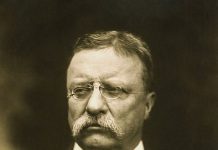By: Kent Ingle
On February 10, 1976, President Gerald R. Ford declared the observance of Black History Month with the commitment of seizing “the opportunity to honor the too-often neglected accomplishments of Black Americans in every area of endeavor throughout our history.”
While our nation’s past illustrates grave suffering – from slavery, discrimination and segregation – it also sheds light on moments of triumph and exemplifies the importance of unity.
The recognition of this month is in large part due to the work of Carter. G. Woodson, known as “the Father of Black History.” At the beginning of his academic career, Woodson noticed a lack of knowledge about African Americans in U.S. history. Woodson worked tirelessly to remedy this problem by informing the public of Black Americans’ contributions to our country, our history and our culture.
As Woodson showed us, history provides valuable insights and inspirational stories that we can apply to our lives today. Here are five leadership lessons we can learn from Black Americans who greatly contributed to our nation.
Develop Pathways for Growth
When Dr. Daniel Hale Williams saw a lack of opportunities for Black Americans to advance in the medical world, he created them. Williams opened Provident Hospital and Training School for Nurses in 1891 – the country’s first interracial hospital and nursing school.
It was in Provident hospital where Williams would perform the world’s first successful open-heart surgery after a man was brought in with a stab wound to his chest. The man walked out of the hospital and lived another 20 years.
In 1913, Williams was the first African American to be inducted into the American College of Surgeons. He also co-founded the National Medical Association for Black professionals, since they were prohibited from the American Medical Association. Williams created professional development avenues through Provident Hospital for people to succeed in the medical field.
When there is no way forward, leaders create pathways for their teams. Leaders invest their time in building up those around them and encouraging them to grow their talents. A successful leader isn’t threatened by others but instead strives to develop those around them.
Be a Reassuring Voice
A civil rights activist and newspaper publisher, Daisy Bates was instrumental in helping the Little Rock Nine attend the all-white Central High School in Little Rock, Arkansas. When the governor, Orval Faubus, ordered members of the Arkansas National Guard to prevent the entry of Black students into the schools, Bates supported and advocated for them.
In addition to being a key figure who fought for the integration of schools, Bates also served as the president of the Arkansas Conference of Branches, which fell under the state NAACP. Later on, she worked on anti-poverty projects under President Lyndon B. Johnson’s administration.
Bates once said, “No man or woman who tries to pursue an ideal in his or her own way is without enemies.”
During her fight for integration, her family was often intimidated and threatened. However, Bates never wavered. She remained a steady voice for others and used her newspaper to document civil rights. In moments of crisis, leaders should model a sense of peace, strength and conviction. Leaders must stay calm and be a place of security and reassurance for their teams.
Create Equal Opportunities
An enslaved crewmember of a ship, Robert Smalls would take a risk to earn his freedom. When Smalls and others seeking freedom were left on a ship unattended, they sailed it to rescue their families and turned it over to the United States Navy.
Once free, Smalls provided valuable knowledge of the Confederate operations to the Union and served as a pilot on naval vessels against the Confederates. Some of his later contributions included leading a boycott of the desegregation of Philadelphia’s transit system in 1867. He also went on to serve in the House of Representatives for 12 years.
Smalls said, “My race needs no special defense, for the past history of them in this country proves them to be equal of any people anywhere. All they need is an equal chance in the battle of life.”
The more successful Smalls became, the more determined he was to create equal opportunities for others. Leaders who rise in an organization should become less focused on what they produce and more focused on creating opportunities for other people to be successful.
Improve the Lives of Others
Jane Bolin dedicated her life to bettering the lives of others. Bolin was the nation’s first African American woman to be appointed a judge and the first Black woman to graduate from Yale. As a judge, she served in the family court of New York City.
During her four decades in that role, she fought against racial discrimination in the court system and advocated for children. She made lasting reforms within the court to remove discriminatory racial policies.
Bolin said, “Families and children are so important to our society, and to dedicate your life to trying to improve their lives is completely satisfying.”
Leadership shouldn’t be for selfish gain but rather for the advancement and improvement of others. With their power and influence, leaders should use their position to make the lives of others better.
View Opposition as an Opportunity
Although a world-class researcher, entrepreneur and holder of more than 130 chemical patents, Percy Julian encountered many obstacles throughout his life. As a research fellow at DePauw University in 1932, Julian investigated plant products, such as the Calabar bean, where he synthesized the plant’s physostigmine chemical to develop an anti-glaucoma drug.
Although he received much recognition for this achievement, he was not offered a professorship. He then moved to the corporate world to work for Glidden Company.
His research there led to the development of progesterone from soybeans to treat certain cancers and miscarriages, and the creation of a foam from soy protein that could put out oil and gas fires. This was adopted by the U.S. Navy and saved numerous lives during World War II. Julian eventually left Glidden to establish his own company, Julian Laboratories, which specialized in producing synthetic cortisone.
Though a successful inventor and researcher, Julian dealt with threats and encountered discrimination. His life showed persistence and great determination. Hardships clarify a leader’s motivations and intentions. It’s the difficult moments when a leader can discover strengths they didn’t know they had.
While we celebrate Black History Month, it’s critical that we acknowledge the individuals who shaped our history. These people sacrificed greatly so our nation would be a better place. They fought for social justice and equality – all while encountering racial discrimination and threats to their lives.
As we read stories of remarkable leaders and citizens who impacted our nation, we must apply the lessons we learn to our own leadership styles. And, let us continue to celebrate these incredible individuals beyond the month of February.





